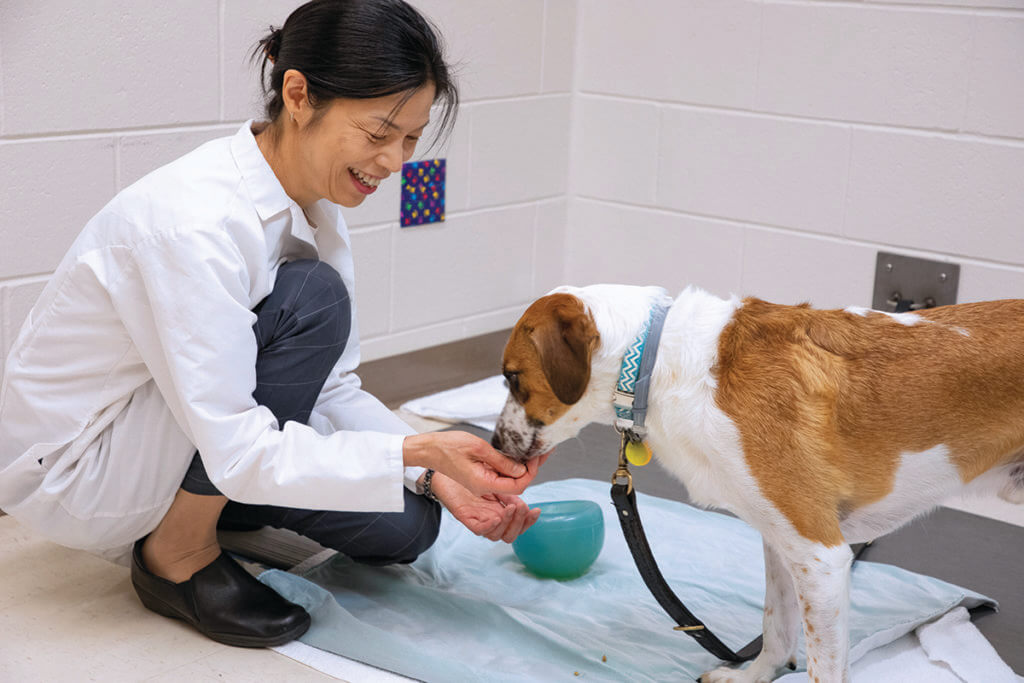Purdue Veterinary Medicine Receives Grant from Human-Animal Bond Research Institute and Pet Partners

The Human-Animal Bond Research Institute (HABRI) and Pet Partners have partnered together for a grant to fund a Purdue University research project that is investigating the impact that interacting with a dog has on human brain activity. Researchers led by Dr. Niwako Ogata, associate professor of animal behavior at the Purdue University College of Veterinary Medicine, are using Functional Near-Infrared Spectroscopy (fNIRS) to measure the neural responses correlating with human-dog interaction, and potential factors that influence these responses.
“We hear stories every day about how our Pet Partners registered therapy dogs and their handlers make a positive difference in peoples’ lives,” said C. Annie Peters, president and CEO of Pet Partners. “We’re proud to fund this research project, which will use imaging technology to gain a deeper understanding of what happens inside the brain when a dog brings comfort to someone in need.”
A large body of research demonstrates the benefits of the human-animal bond for the mental and physical health and wellbeing of people. The most typically deployed measures of these benefits are self-reporting and psychological evaluation, which do not reveal the underlying mechanisms of the human-animal bond, such as changes in brain activity. fNIRS is one of the most common non-invasive functional imaging methods which uses near-infrared light to estimate neural or brain activity.
“Despite analyzing inter-species interactions and dealing with social behaviors, human-animal interaction research from the neuroscience approach is scarce,” said Dr. Ogata, the study’s lead investigator. “With the brain imaging expertise of Dr. Yunjie Tong, assistant professor in Purdue’s Weldon School of Biomedical Engineering, and our collaborators on our inter-disciplinary team approach, we will produce methodologically rigorous evidence regarding the neural correlates of the human-animal bond, enhancing our understanding of the human-animal bond and serving as the basis of future research.”
This project involves enrolling healthy, dog-owning adult participants to undergo a psychosocial and physiological stress test in a controlled laboratory setting. Participants interact with both a familiar and unfamiliar dog during the recovery period from the stress test as researchers evaluate the neural response using fNIRS, in addition to more standard saliva testing and self-reports, to verify the fNIRS findings. Researchers will also observe canine behavior and heart rate variability to analyze how the dog processes this interaction.
“This study represents important foundational science on the underpinnings of the human-animal bond,” said Steven Feldman, president of HABRI. “In supporting this project, HABRI and Pet Partners hope to not only advance the field of human-animal interaction, but to also help support the proliferation of safe, effective animal-assisted interventions for people of all ages and health conditions.”
Click here to access the original news release.

